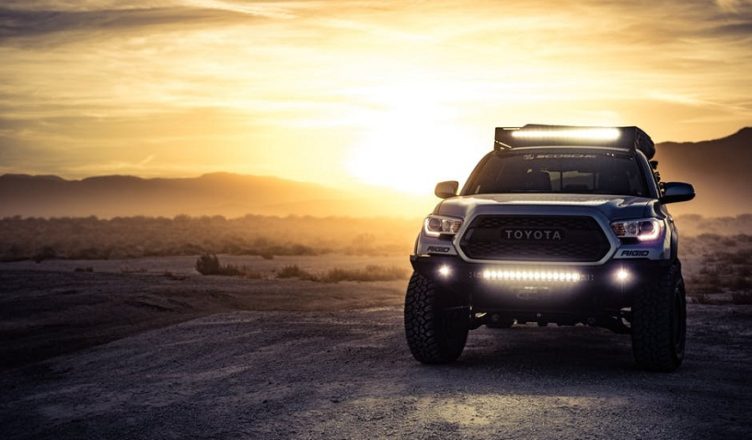So you’re on the market for a new car? How exciting!
You might have been browsing trucks for the longest time, or maybe you’ve been eyeing the neighbors’ SUV a bit too much. No one can blame you. In 2019, 47.4% of all car sales in the U.S. were SUVs.
If you’ve been unable to decide on which one you should buy and you’ve spent too much time oscillating in the truck vs SUV dialogue, then you’ve come to the right place. Keep on reading to learn about the key differences between the two, as well a detailed breakdown of each one’s advantages and disadvantages.a
Overview of Trucks
If you’ve been around trucks or have been thinking about getting one, you’re most probably familiar with the main reason why people buy them. It’s usually for work purposes, specifically a truck’s towing capacity.
Yet, regardless of the reason behind wanting a truck, here are the critical pros and cons of getting one.
Advantages of Getting a Truck
Alright, the first order of business would be engine power, which a truck would have in spades. Even if you’ve been looking up trucks and SUV models from the same manufacturer, you’ll find that most trucks will have upgradeable diesel engine options.
The second main advantage of having a truck would be the storage bed. If you’re in the business of hauling things like lumber, then you’ll know that the storage bed is the main reason why you got a truck in the first place.
Thus, if you’re interested in owning a vehicle that can easily move furniture and other bulky objects, then the truck is king. Not to forget the key quality in trucks, which is the towing capability. If you’re predicting the need to pull boats, campers, or trailers, then you’re looking for a truck.
Disadvantages of Getting a Truck
Needless to say, if you’re looking for maneuverability for both on the road and off roading, then you might be better off getting an SUV. Trucks are a bit too big to easily maneuver.
Moreover, a truck’s bed will always have a trade-off with your seating space. This makes it tricky to find a truck with adequate seating space. When it comes to full cabs that provide enough seating for five adults, you’ll have to deal with a shorter bed than average.
Keep in mind that having a big bed space is crucial for a truck’s function when it comes to working uses.
Finally, you get to deal with low gas mileage in comparison to SUVs. Generally speaking, a truck with good mileage will get an average of 20 mpg in the city, and 25 on the open road (or the highway).
Overview of SUVs
There are a variety of reasons behind the popularity of SUVs, which we’ll discuss in-depth in a minute. Basically, SUVs are unique in their ability to serve many different purposes. They are fantastic passenger vehicles, as well as good enough to move smaller loads.
You’ll tend to hear that SUVs are the middle ground between a truck and a car, and that’s a true statement. Also, if you’re an athlete and you’re used to lugging around equipment or supplies, then an SUV is your new best friend.
Advantages of Getting an SUV
An SUV is well-known for its space and its ability to comfortably seat five to seven people in one go. Another perk is an SUV’s maneuverability when compared to a truck.
Of course, you’ll have to keep in mind that a regular passenger car will definitely be more maneuverable than an SUV.
Besides, when it comes to gas mileage, an SUV will perform better than a truck. As a matter of fact, some small SUVs manages to get better gas mileage than many passenger cars as well.
Disadvantages of Getting an SUV
Unfortunately, similar to any type of vehicle, SUVs come with their unique drawbacks.
Unlike trucks, SUVs tend to be a bit higher from the ground than your average vehicle, which presents a higher risk of flipping over. Yet, there are many SUVs on the market with specialized features that work on decreasing this risk.
Another disadvantage of buying an SUV is the very basic problem of cost. On average, SUVs go for slightly higher prices than trucks. Speaking of higher costs, you’ll have to contend with higher rates of insurance on SUVs than other vehicles.
Usually, SUV owners are expected to pay a rate that’s higher by 10% to 20% than other vehicles. This is due to the insurance industry’s hypothesis that SUVs have a higher risk of accidents.
Truck vs SUV: Drivability
After going through the foundational pros and cons of both trucks and SUVs, let’s focus on the qualities that might matter the most to you, starting with drivability.
In this comparison, large SUVs win. Due to the new vehicle technologies, you’ll find that SUVs will handle a bit more responsively. Unlike trucks that have shown a bit of a lag when it comes to swerving around objects.
Truck vs SUV: Towing Capacity
It would be unfair to say that you can’t tow anything with an SUV. However, even with midsized SUVs that can tow up to 5,000 pounds, you don’t want to push your vehicle to tow something near its maximum capacity.
All it does is add stress to your vehicle and add on some safety concerns. That stops being a concern if you’re dealing with a truck. Trucks win when it comes to towing capacity, hands down.
Ready to Get the Vehicle of Your Dreams?
Choosing between a truck or an SUV can be a bit tricky, especially if you’re comparing ones from the same manufacturer with similar qualities and specs.
Yet, there are still enough differences in the truck vs SUV dilemma to help you make a well-informed decision. We hope that our little guide was informative enough, but if you’re still looking for additional information, no worries.
Make sure to check out our automotive section for all the tips and guidelines that you could need.

